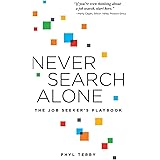The landscape of career advancement in information technology, particularly within the dynamic field of cybersecurity, has profoundly shifted. Historically, a robust resume and diligent online applications were considered the primary pathways to securing coveted positions. However, a significant transformation has occurred in recent times, emphasizing the undeniable power of personal connections.
Indeed, as was discussed in the accompanying video, the traditional methods are often supplemented, or even superseded, by effective cybersecurity networking. This foundational skill is now frequently recognized as the most potent instrument for uncovering hidden job opportunities and fostering professional growth within this specialized industry. Understanding the crucial “do’s and don’ts” of networking is therefore essential for anyone aspiring to excel in cybersecurity.
The Unrivaled Importance of Networking in Cybersecurity
The value of strategic networking cannot be overstated within the cybersecurity domain. A compelling statistic reveals that approximately 70% or more of all jobs are ultimately filled through personal connections rather than conventional applications or resumes. This highlights a powerful, often unseen, aspect of the job market.
Furthermore, many highly sought-after cybersecurity roles are never publicly advertised; instead, they are often discovered through informal conversations and referrals. Therefore, individuals who actively cultivate a strong professional network gain access to a broader spectrum of potential career paths and unparalleled mentorship opportunities.
Essential Do’s for Effective Cybersecurity Networking
Successful cybersecurity networking is considered an art form that is developed and refined over time. Adherence to a few core principles can significantly enhance one’s ability to forge meaningful professional relationships.
Be Genuine and Relationship-Oriented
Authenticity forms the bedrock of any successful networking endeavor. It is imperative that interactions are approached with a sincere interest in the other person, rather than a transactional mindset focused solely on personal gain. Genuine curiosity about someone’s background, professional journey, or current projects typically fosters a much stronger connection.
Consequently, conversations become more engaging and memorable when active listening is demonstrated and thoughtful follow-up questions are posed. This approach helps to build rapport, which is considered an invaluable asset in the development of a lasting professional relationship.
Engage Consistently and Thoughtfully
Building a robust network demands consistent, yet not overwhelming, engagement. A single message or initial meeting is typically insufficient for establishing a strong connection; instead, periodic check-ins are often necessary.
However, careful consideration must be given to the frequency and nature of these interactions. Brief, relevant updates or shared articles can help maintain a connection without being perceived as overly persistent. A strategic balance is therefore achieved between nurturing relationships and respecting professional boundaries.
Add Value to Your Connections
The most successful networkers consistently seek opportunities to provide value to others. This ‘giver mentality’ can manifest in various forms, such as sharing insightful articles, making relevant introductions, or offering assistance where possible. Such actions reinforce your role as a valuable contributor to the community.
Moreover, this approach often leads to reciprocal benefits, where assistance and opportunities are extended in return. Demonstrating generosity and a willingness to support others is a powerful way to strengthen your professional ties and build a positive reputation.
Key Don’ts to Avoid in Cybersecurity Networking
While the ‘do’s’ guide constructive engagement, awareness of common pitfalls is equally important for effective cybersecurity networking.
Avoid Being Overly Transactional or Desperate
A common mistake is approaching networking with an immediate agenda, such as directly asking for a job or a specific favor early in a relationship. This can easily be misinterpreted, leading to an unfavorable impression. The focus should always be on establishing a mutual connection, not on what can be obtained immediately.
Furthermore, persistent and uninvited requests can quickly lead to an individual being perceived as desperate or pushy. Professional relationships thrive on mutual respect and shared value, which are undermined by a purely opportunistic approach.
Refrain from Using Generic Messages or Approaches
In today’s digital age, generic outreach messages are often disregarded. Messages lacking personalization or specific references to the recipient’s work or interests are frequently identified as insincere. A tailored message demonstrates genuine effort and consideration.
When reaching out, particularly on platforms like LinkedIn, it is advisable to personalize each communication by referencing shared interests, mutual connections, or recent professional achievements. This practice significantly increases the likelihood of a positive response and fosters more meaningful engagement within your professional network.
Strategies for Introverts in Cybersecurity Networking
Many individuals identify as introverts and may find traditional networking events daunting. However, effective cybersecurity networking is a skill that can be developed by anyone, regardless of personality type. Specific strategies can be employed to make the process more comfortable and productive.
Preparing for Interactions
For introverted individuals, preparation can significantly reduce anxiety related to networking. This includes researching attendees or speakers at an event, developing a few open-ended questions to initiate conversations, and planning potential follow-up actions. Having a clear purpose and a mental script can provide a sense of control.
Furthermore, setting small, achievable goals, such as initiating one conversation or exchanging contact information with two new people, can make events less overwhelming. Gradually, these small successes will build confidence and facilitate more extensive interactions within your professional network.
Leveraging Online Platforms
Online platforms offer a less intense environment for networking compared to in-person events. LinkedIn, for example, allows for thoughtful, personalized messages that can be crafted and refined without the pressure of immediate interaction. This is often preferred by introverts seeking to expand their professional connections in cybersecurity.
Furthermore, participating in online forums, Discord servers, or Slack channels related to cybersecurity allows for engagement based on shared interests and expertise. These digital spaces provide opportunities to contribute value and form connections at a comfortable pace, which is ideal for those who prefer more measured social interactions.
Mastering Digital and In-Person Networking Opportunities
Both online and offline avenues are critical for building a comprehensive cybersecurity networking strategy. Each platform presents unique opportunities and requires distinct approaches.
Optimizing LinkedIn for Professional Connections
LinkedIn stands as a cornerstone for professional networking in cybersecurity. A well-curated profile that highlights skills, experiences, and interests is paramount. When initiating contact, it is suggested that a brief, personalized message be sent, expressing admiration for their work or identifying a common professional interest.
Consideration should be given to the initial message, ensuring it is concise and respectful of the recipient’s time. Subsequent engagement can involve sharing relevant content or offering insights on topics of mutual interest. This sustained, thoughtful interaction helps to deepen professional relationships over time.
Navigating In-Person Events and Meetups
Attending industry meetups, conferences, and local tech events provides invaluable opportunities for face-to-face networking. It is important to remember that many attendees share similar objectives, and initial awkwardness is a common experience. As was noted in the video, actively seeking individuals who are not already deeply engaged in conversation allows for easier introductions.
Initiating contact by introducing yourself and asking about the other person’s role or interests is a simple yet effective strategy. A crucial detail, as emphasized by Dale Carnegie, is the power of remembering and using someone’s name. This simple act can create a memorable and positive impression, strengthening the foundation of any new professional connection within cybersecurity.
Cybersecurity Networking Q&A: Making the Right Connections
Why is networking important for finding a job in cybersecurity?
Networking is crucial because many cybersecurity jobs are filled through personal connections and referrals, rather than traditional applications. This often includes hidden job opportunities that are never publicly advertised.
What is a key ‘do’ for effective networking in cybersecurity?
It’s important to be genuine and relationship-oriented, showing a sincere interest in others and actively listening to build strong, lasting professional connections.
What is a common ‘don’t’ to avoid when networking in cybersecurity?
Avoid being overly transactional or desperate; don’t immediately ask for a job or favor. Instead, focus on building mutual connections and shared value first.
How can introverts successfully network in cybersecurity?
Introverts can prepare for interactions by researching and planning questions, and leverage online platforms like LinkedIn or professional forums for less intense, thoughtful engagement at their own pace.









